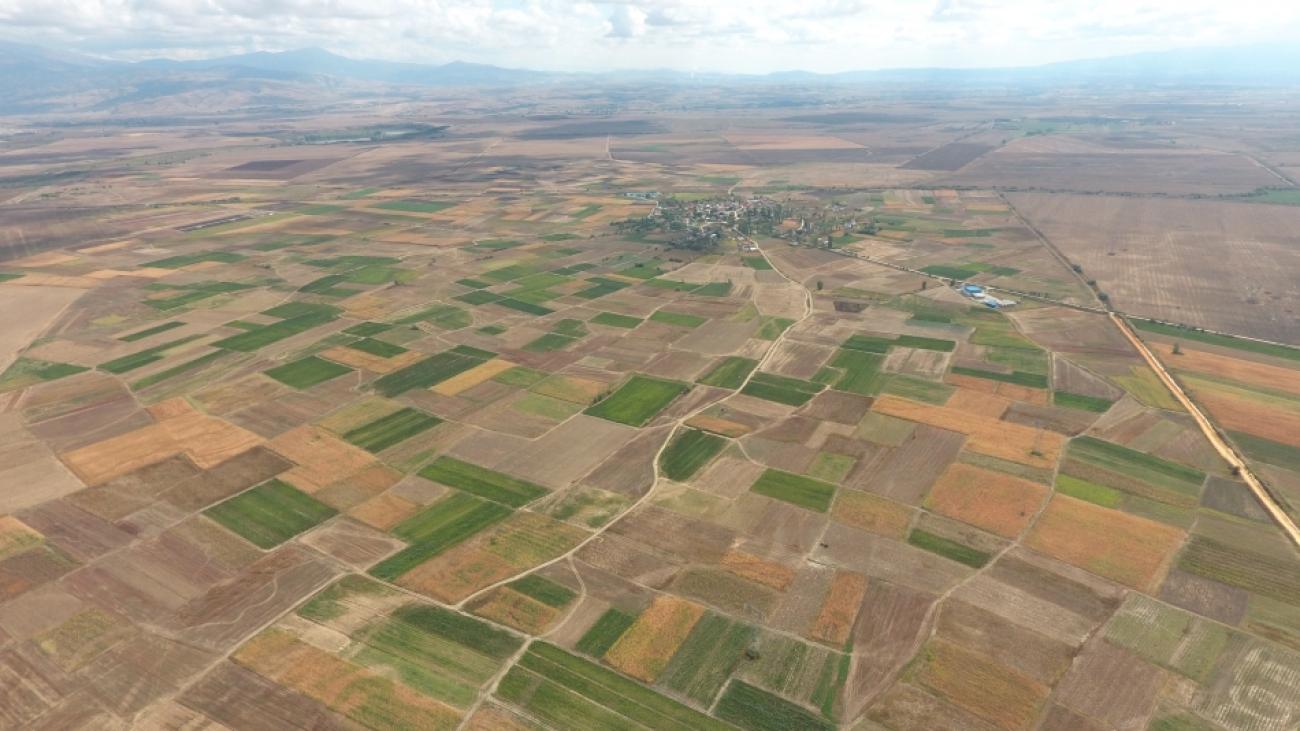The 2020 European Commission Report on North Macedonia has recognized the advanced status of land consolidation in the country. This achievement is a result of the joint efforts of FAO, the European Union (EU), and the Ministry of Agriculture, Forestry and Water Economy.
Since March 2017, through the ongoing project “Mainstreaming of the National Land Consolidation Programme’’ (or MAINLAND) funded by the EU, FAO is helping agricultural land owners and rural communities in North Macedonia to address land fragmentation and small farm sizes. The ultimate goal is to increase the competitiveness of farms, enhance rural livelihoods, and improve sustainability in the use of natural resources.
In two areas (Egri and Konce), land consolidation has already been piloted. Building on this experience, FAO and the European Union are assisting the Ministry to scale-up the National Land Consolidation Programme across the country and develop the technical and administrative expertise of the Ministry and other key public and private partners.
According to the report’s chapter on agriculture and rural development, in terms of EU accession requirements, North Macedonia remains moderately prepared, with advanced progress in structural reforms on land consolidation and agriculture cooperatives, and good progress in implementing the Instrument for Pre-Accession Assistance for Rural Development and the Farm Accountancy Data Network.
In its current National Strategy for Agriculture and Rural Development, the Republic of North Macedonia recognizes land consolidation as a key structural reform instrument to address the existing excessive land fragmentation and improve agricultural productivity.
The MAINLAND project builds on earlier efforts of the FAO Technical Cooperation Project in North Macedonia from 2015 to 2017 that reviewed the national legal and institutional framework for land consolidation and provided recommendations to operationalize the National Land Consolidation Programme.
The adoption of the amended Law on Consolidation of Agricultural Land in May 2018 marked the first milestone of land consolidation work in North Macedonia. This created the enabling legal environment for cost effective and efficient implementation of land consolidation projects, necessary to ensure respect for legitimate tenure rights. The first voluntary and majority-based land consolidation plans in the villages of Konce and Egri followed in late 2019 and early 2020. The land consolidation plan in Egri includes 336 ha of agricultural area owned by 214 landowners, and resulted in an almost fourfold reduction in the number of land parcels (from 874 to 260) that are better shaped and allow for better farming practices. The area in Egri has also benefitted from agricultural infrastructure investments, such as roads, irrigation, and drainage systems.
Land consolidation is advancing in seven additional areas in North Macedonia, which are currently in the planning phase of land re-allotment, affecting at least 2 500 owners and a total around 3 000 ha of agricultural land.
“The advancement of land consolidation in North Macedonia, as recognized by the European Commission, confirms that the joint efforts of FAO, the European Union, and the Government of North Macedonia to mainstream and scale-up the National Land Consolidation Programme across the country have brought visible results,” said FAO land tenure officer Morten Hartvigsen. “This is an excellent example for successful land consolidation, also in an international perspective.”
The report is part of the European Commission’s 2020 Enlargement Package for the Western Balkans, which, together with its Economic and Investment Plan, provides an assessment of where the Republic of North Macedonia stands in implementing key political and economic reforms on its journey to become part of the European Union.





